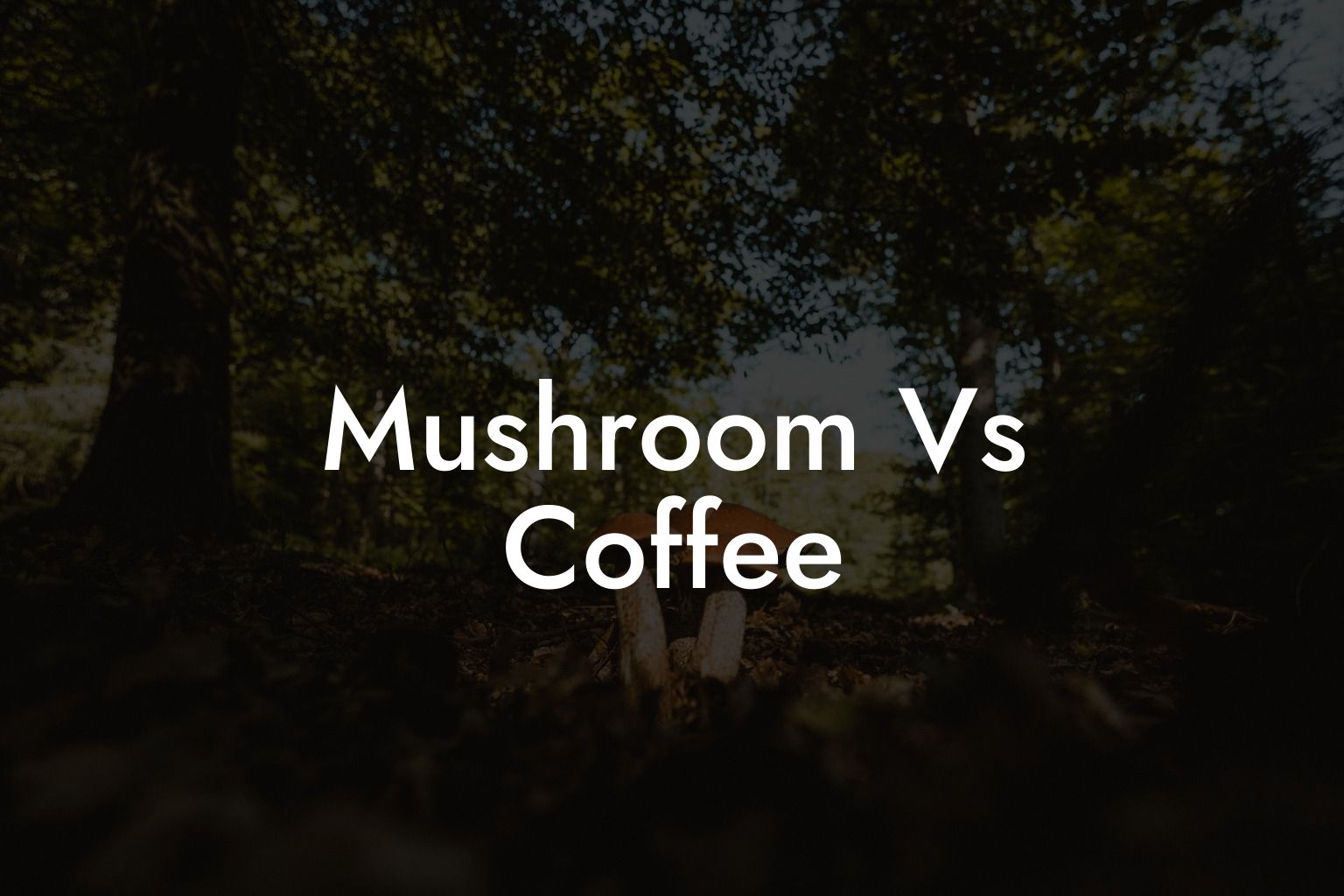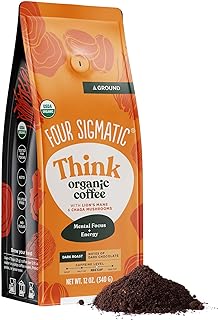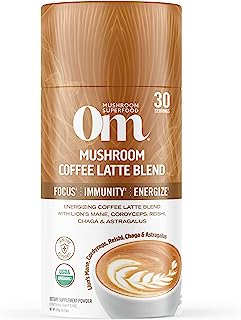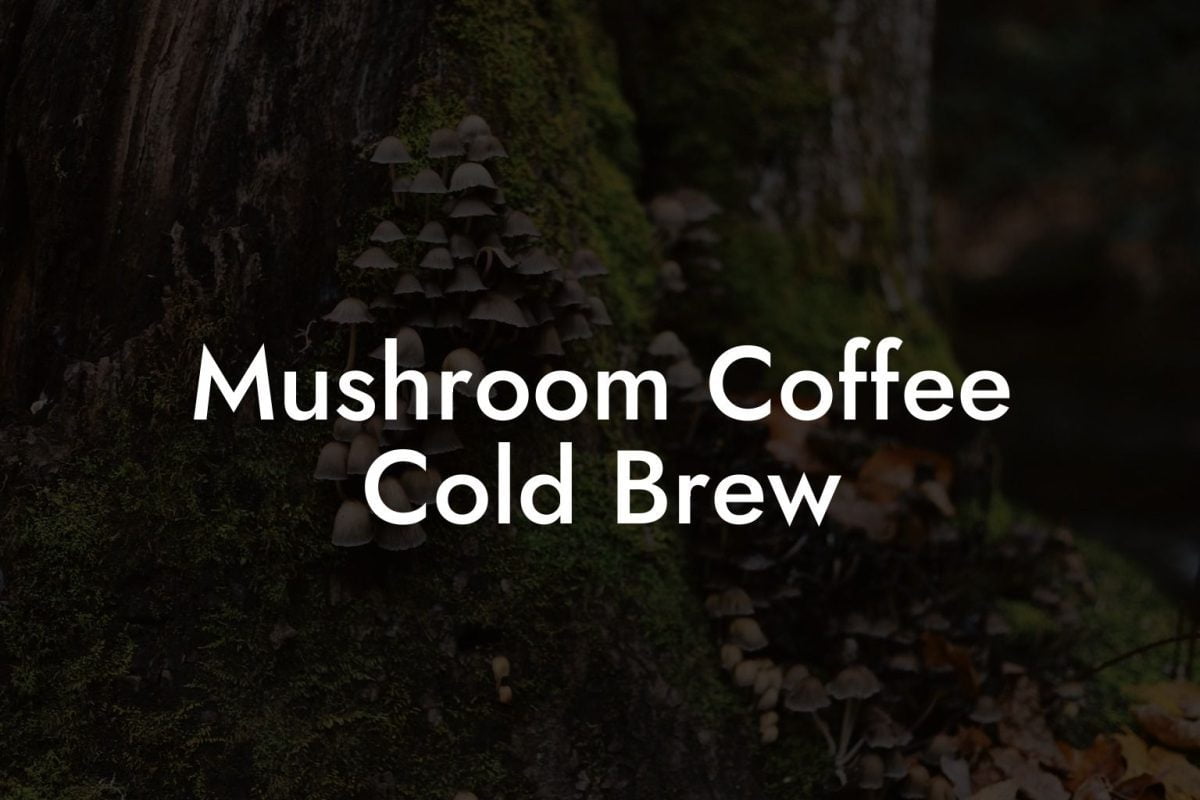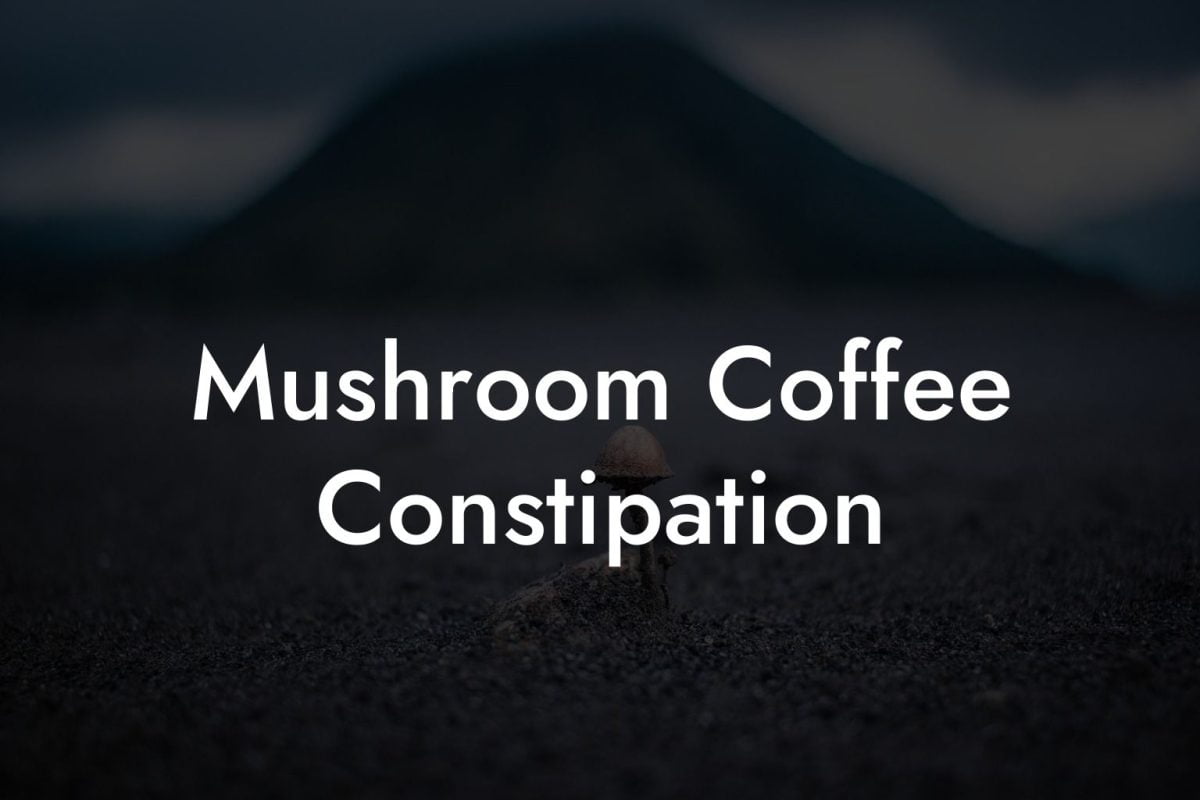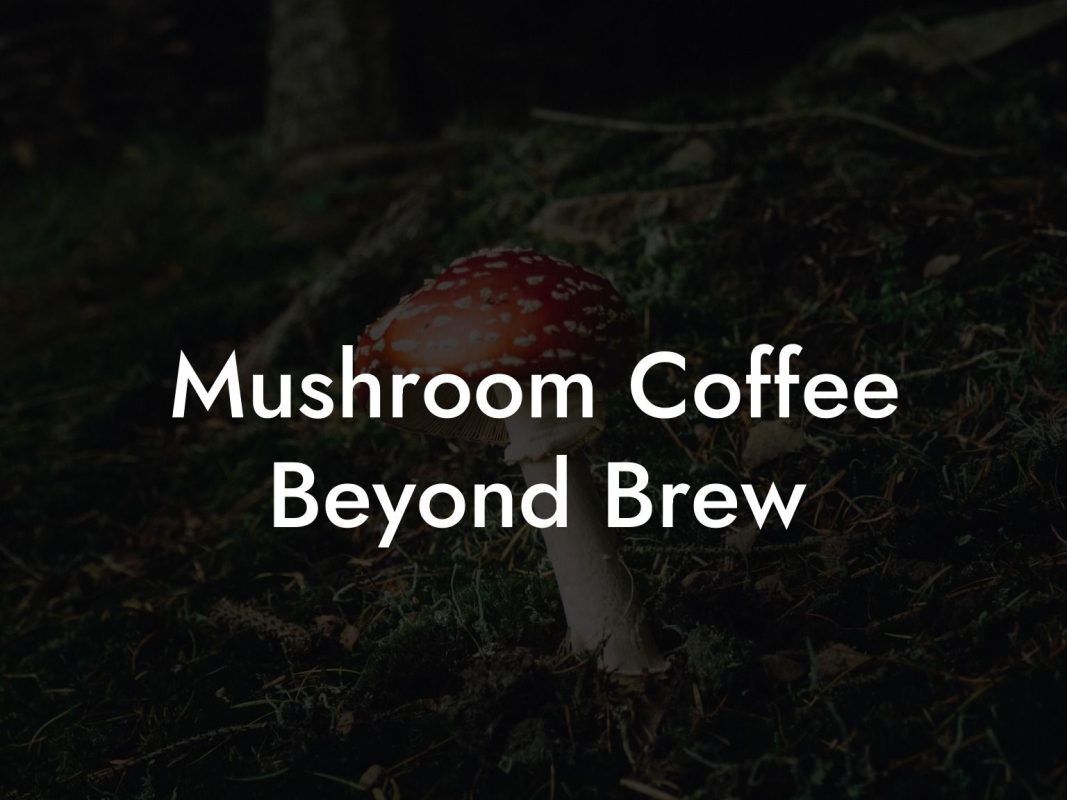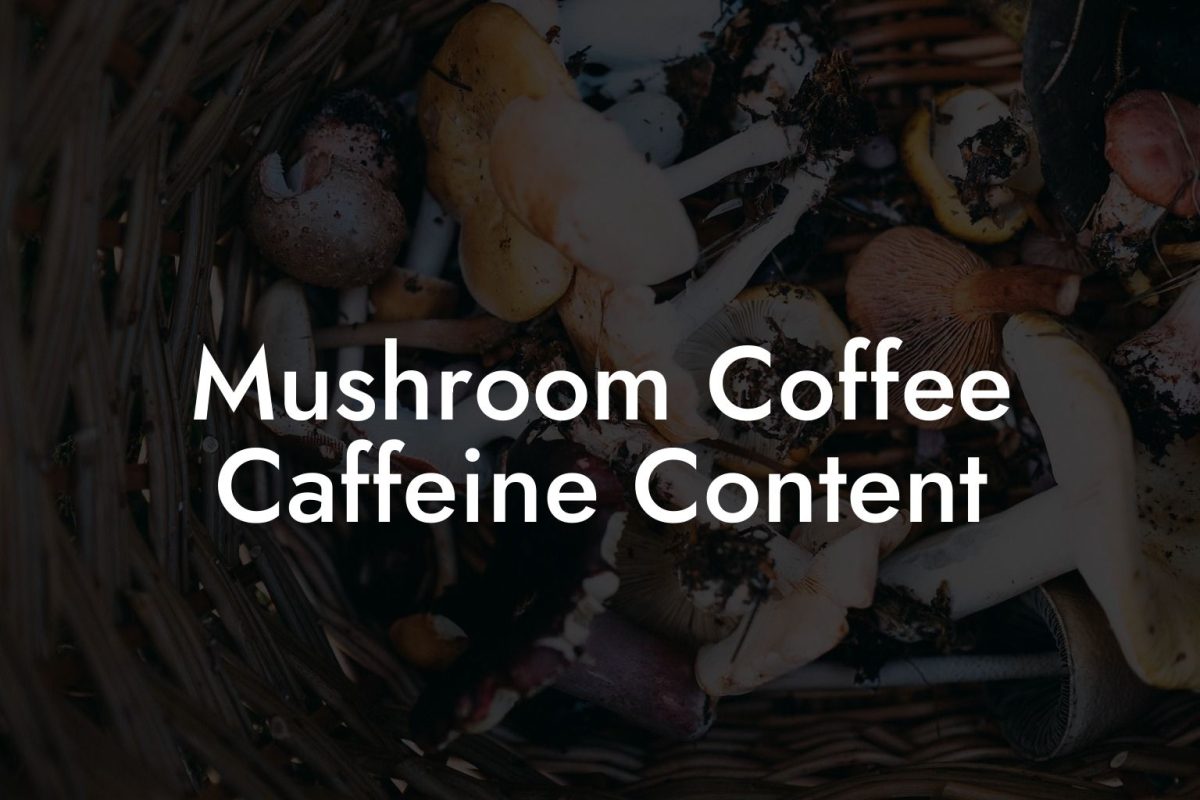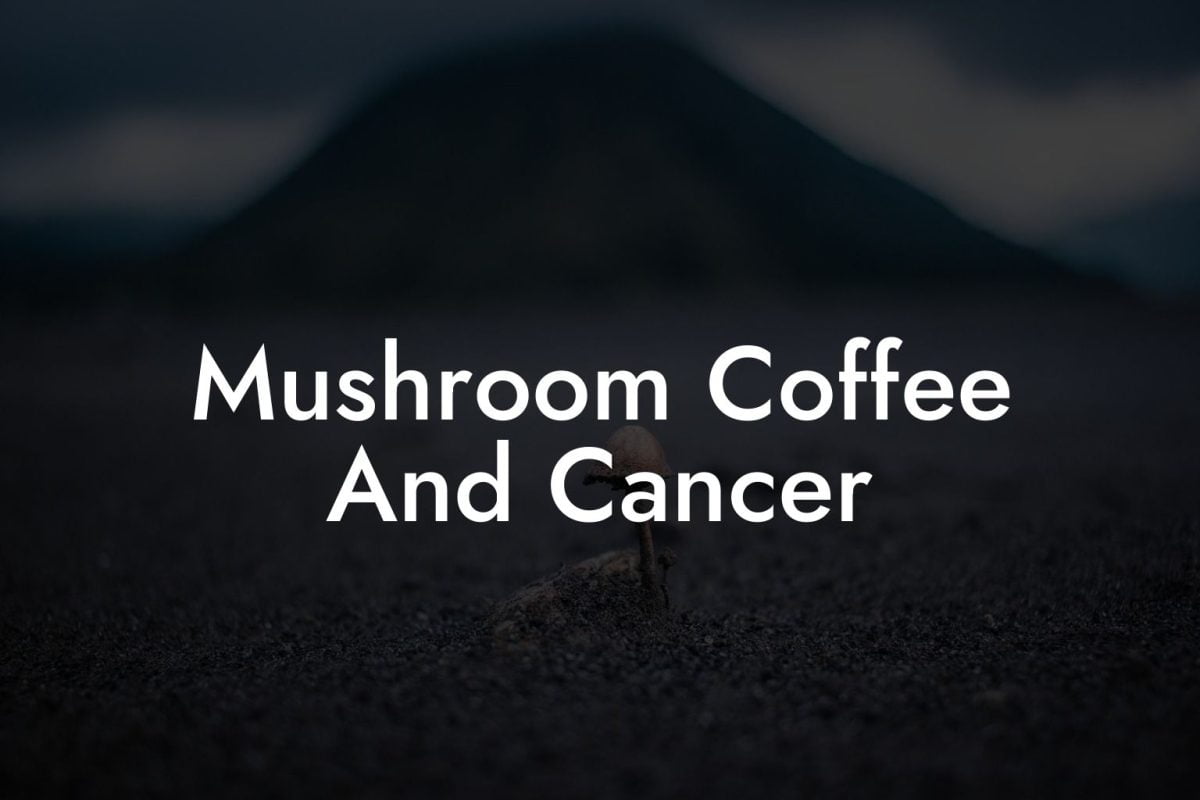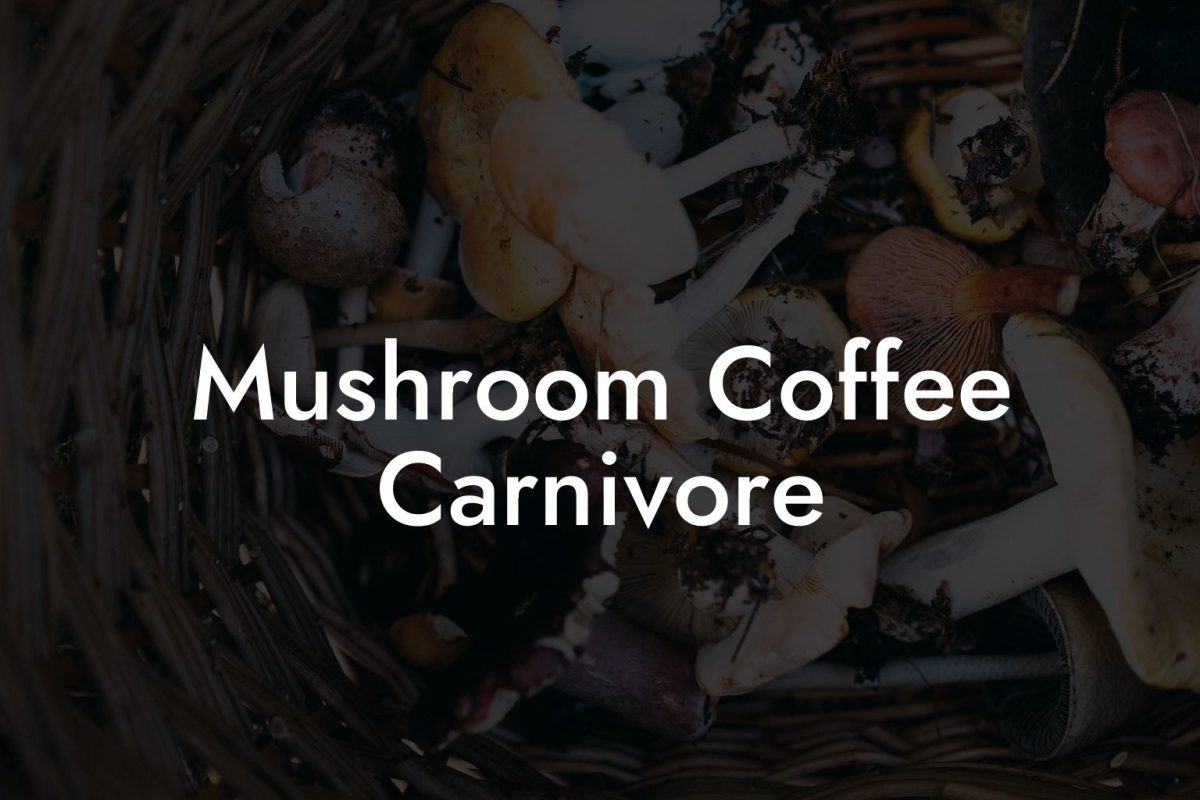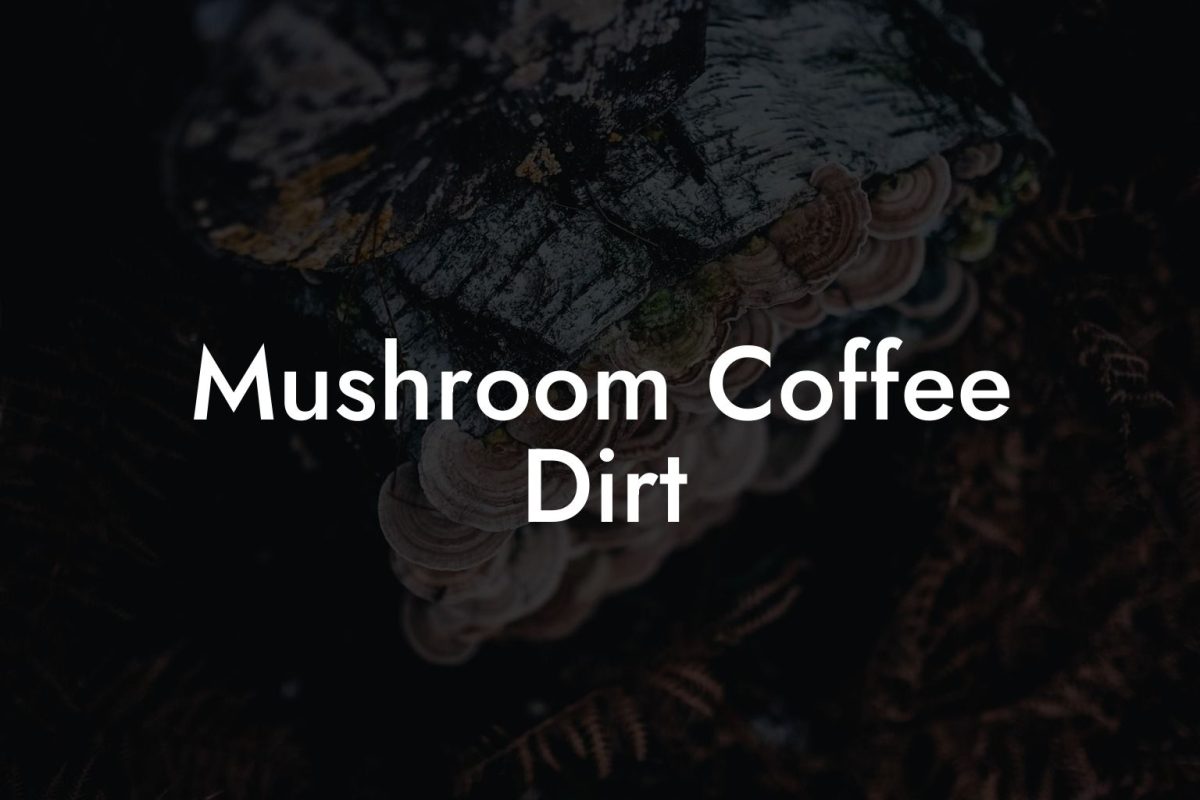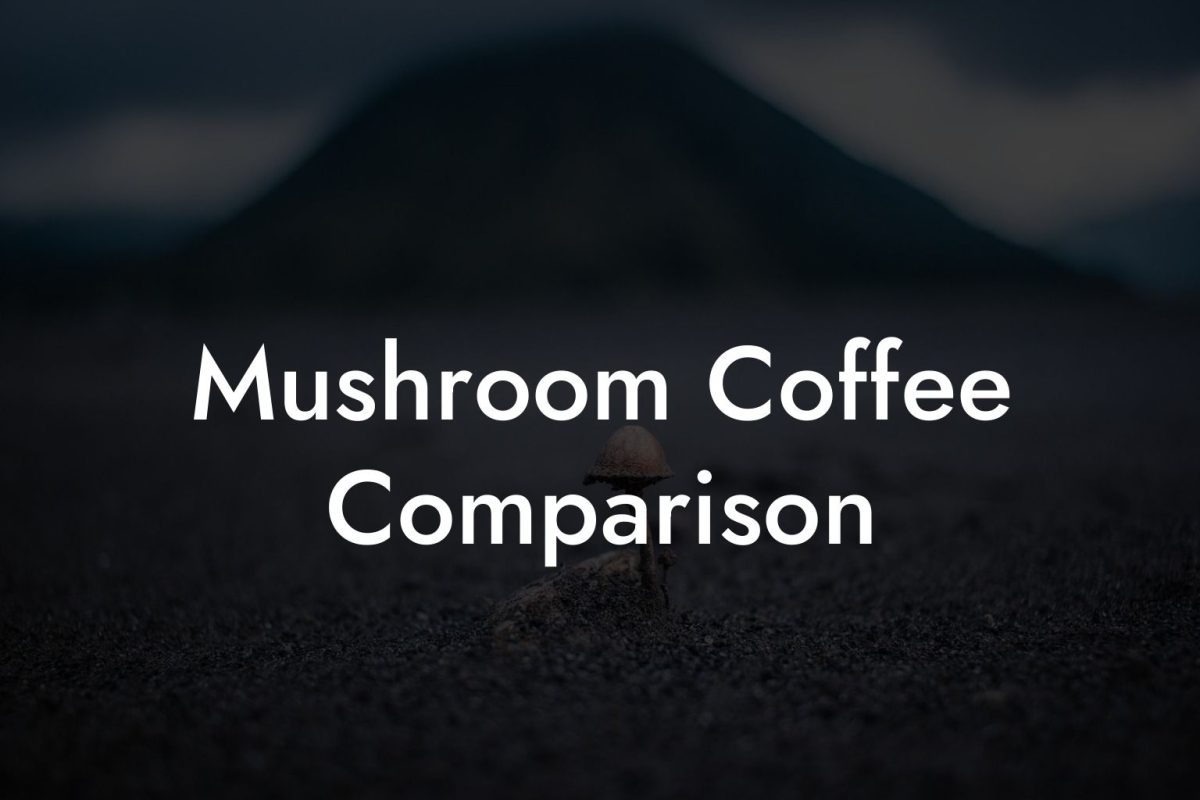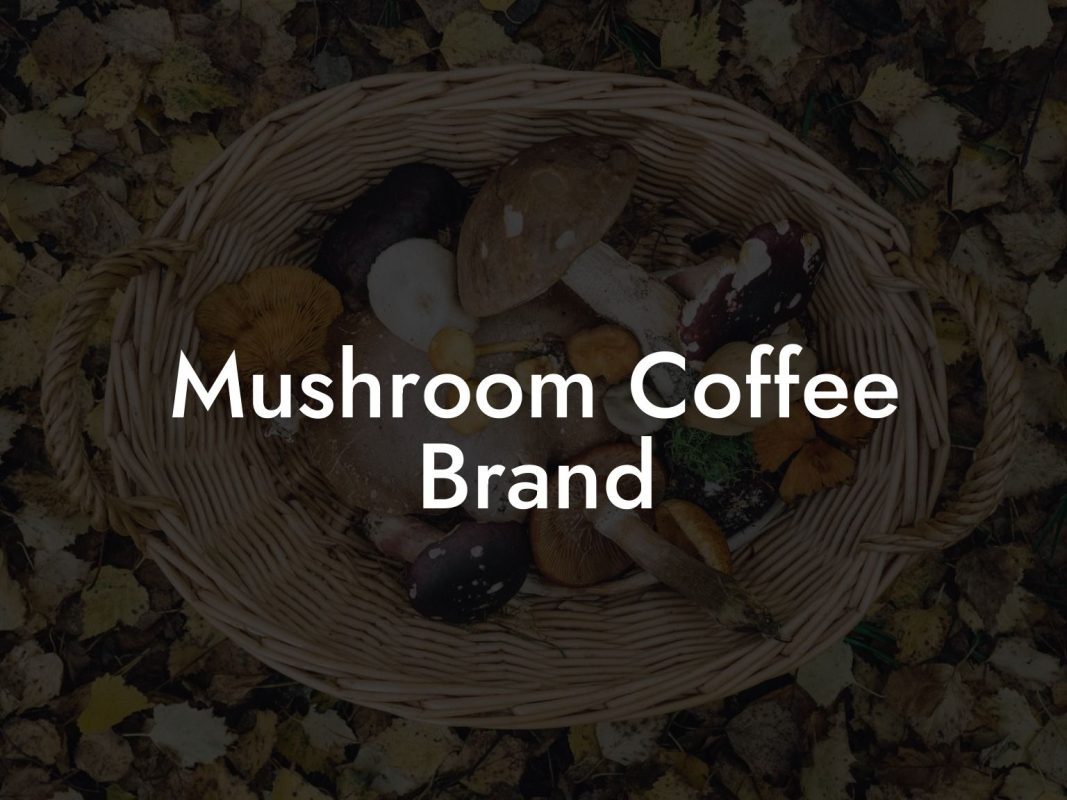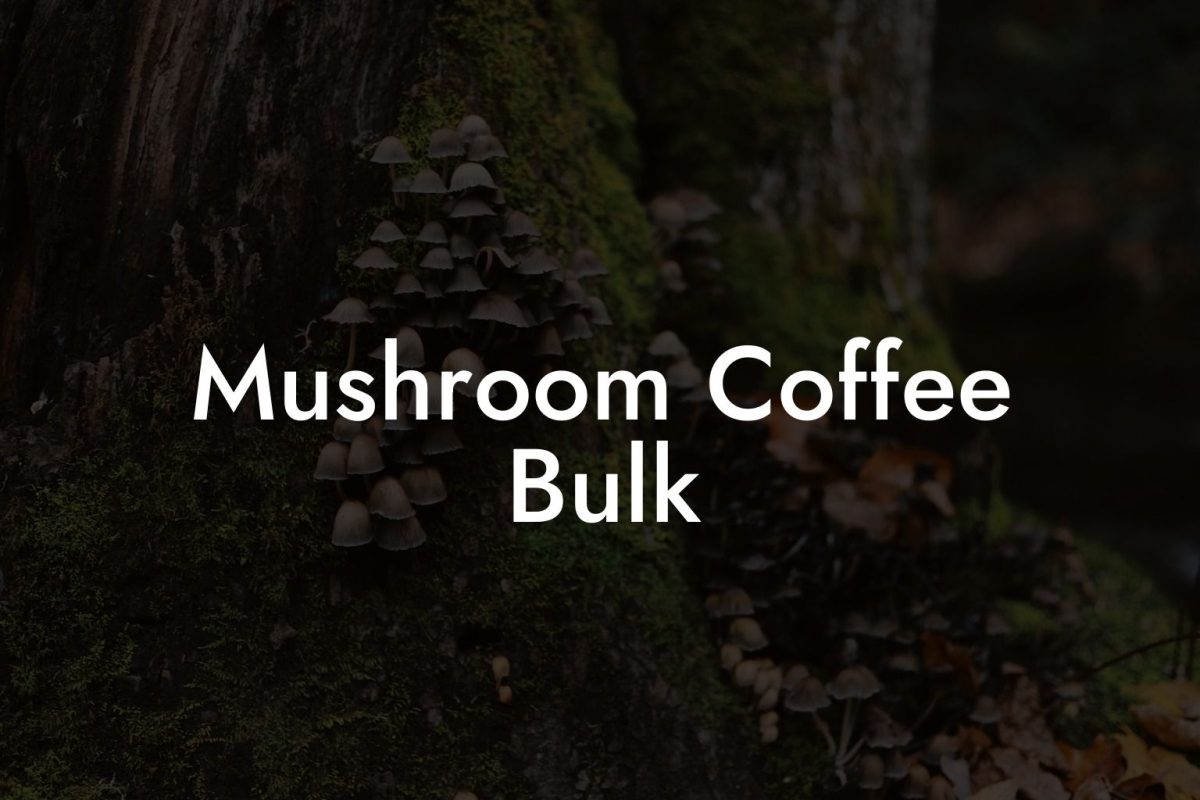Picture this: it's early morning, your phone buzzes with notifications, and you're scrolling through memes when you suddenly wonder, "What if there was a way to get my caffeine fix without the jitters?" Enter the epic showdown of our time: Mushroom vs Coffee. In one corner, you have the classic brew that kick-started centuries of creativity and late-night study sessions; in the other, an earthy, mysterious infusion of mushrooms turning heads in wellness circles all over social media. Buckle up, because we're diving deep into this head-to-head battle that’s stirring up conversations among Gen-Z, millennials, and coffee aficionados alike.
Quick Links to Useful Sections
- Decoding the Buzz: What is Mushroom Coffee?
- Caffeine Chronicles: A Brief History of Coffee and Mushrooms
- Steaming Hot: The Benefits of Traditional Coffee
- Mushroom Coffee Magic: What’s Under the Cap?
- Mushroom Vs Coffee: The Ultimate Showdown
- The Caffeine Conundrum
- Flavor Face-off
- Nutritional Nutrients
- Adaptogenic Edge
- The Science Behind the Sip: How Do Mushrooms Work?
- Medicinal Mushrooms and Adaptogens
- Chemical Choreography in Your Cup
- Brewing Rituals: How to Transition from Regular Coffee to Mushroom Coffee
- 1. Start Gradually
- 2. Experiment with Recipes
- 3. Find Your Perfect Blend
- 4. Embrace the Ritual
- Coffee Culture Reimagined: Inspiring Gen-Z and Millennial Trends
- Nutritional Showdown: The Health Factor in Every Sip
- Traditional Coffee Nutritional Perks
- Mushroom Coffee Nutritional Boost
- Eco-Friendly and Ethical Brews: The Green Side of Mushroom Coffee
- Recipes and Rituals: Creative Ways to Enjoy Your Mushroom Coffee
- Mushroom Coffee Latte
- Iced Mushroom Coffee
- Mushroom Coffee Smoothie Booster
- Resources and Community Support: Your Next Steps
- Your Mushroom Coffee Journey: Embrace the Fusion
- Frequently Asked Questions About Mushroom Coffee
- Sipping into the Future: Embrace Your New Coffee Culture
Decoding the Buzz: What is Mushroom Coffee?
Mushroom coffee isn’t your everyday cup of joe. It’s an innovative twist on the conventional brew where medicinal mushrooms such as reishi, chaga, lion’s mane, and cordyceps are blended in. These powerhouse fungi are known for their adaptogenic properties, meaning they help your body manage stress, boost mental clarity, and even improve immune function.
Unlike regular coffee, which relies on the kick of caffeine, mushroom coffee aims to offer a balanced energy boost, combining the familiar taste of coffee with a symphony of earthy, umami flavors. Its reputation as a "functional coffee" makes it a popular choice for those looking to swap the anxiety-inducing spikes of traditional caffeine for a smoother, more sustained alertness.
As a growing trend backed by a community of health rebels and wellness seekers, mushroom coffee embodies the spirit of innovation, merging ancient remedies with modern demands. Think of it as your daily ritual reimagined: an elixir that supports both brainpower and a zen-like calm.
Caffeine Chronicles: A Brief History of Coffee and Mushrooms
Coffee has been coursing through the veins of society since the 15th century, igniting the minds of poets, philosophers, and, more recently, coders and content creators. Its stimulant effect quickly made it the heartbeat of bustling metropolises and quiet study sessions alike. Over time, a growing awareness of its downsides, crashes, jitters, and the dreaded mid-afternoon slump, set the stage for innovation in the beverage world.
Looking For The Best Mushroom Coffee? You'll Love These:
On the flip side, mushrooms have been revered for millennia in traditional Eastern medicine. Cultures in Asia have long harnessed the healing properties of medicinal mushrooms, using them for everything from promoting longevity to boosting cognitive function. Today, these fungi are emerging as the secret weapon in the wellness community, with adaptogens leading the charge by mitigating stress and supporting overall health.
Combining these two powerhouses, innovative companies began experimenting with the concept of mushroom coffee. The idea was simple yet radical: mix the robust flavors of coffee with the earthy, nutrient-packed profile of mushrooms to create a drink that not only energizes but also nourishes. The result? A growing cult following among those who want to upgrade their morning routine while keeping it cool, conscious, and decidedly different.
Steaming Hot: The Benefits of Traditional Coffee
Let’s give a little nod to the OG of the caffeine world. Traditional coffee is celebrated for its rich aroma, robust flavor, and straightforward caffeine punch that has powered countless creative breakthroughs and study marathons. Its benefits include:
- Instant Energy Boost: The caffeine in coffee gives you that much-needed jolt to jump-start your day, enhancing alertness and concentration.
- Antioxidant Power: Coffee is loaded with antioxidants, fighting off free radicals and supporting cell health.
- Improved Physical Performance: Caffeine stimulates the nervous system, making it a popular pre-workout beverage for its ability to boost endurance and performance.
- Mood Enhancer: A cup of coffee often acts as a mood elevator, making mundane mornings a tad more vibrant and enjoyable.
Despite its many merits, regular coffee isn’t without its drawbacks. Many coffee drinkers experience the infamous mid-day crash, tense jitters, and trouble unwinding later in the day, leaving them chasing the next cup for relief rather than relaxation.
Mushroom Coffee Magic: What’s Under the Cap?
In contrast to the high-octane rush of traditional coffee, mushroom coffee is all about balance. The inclusion of medicinal mushrooms like lion’s mane and reishi not only offers subtle earthy flavors but also carries a host of benefits designed to temper caffeine’s sometimes rampant effects.
Some of the key benefits of mushroom coffee include:
- Sustained Energy Without the Crash: The adaptogenic properties of medicinal mushrooms support a steadier release of energy, helping to avoid the rollercoaster peaks and valleys of typical caffeine consumption.
- Enhanced Focus and Cognitive Support: Lion’s mane, in particular, is known for its ability to boost brain function, potentially improving memory and concentration, perfect for those late-night study sessions or marathon brainstorming sessions.
- Immune System Boost: Mushrooms like chaga and reishi are famous for their immune-enhancing properties, providing your body with natural support against stress-induced vulnerabilities.
- Reduced Anxiety: Combined with a lower overall caffeine content, the natural compounds in mushrooms can have a calming effect, making your coffee ritual as much about chill as it is about charge.
When you mix the best traits of both worlds, mushroom coffee emerges as a trendy alternative for anyone looking to oscillate between productivity and relaxation effortlessly.
Mushroom Vs Coffee: The Ultimate Showdown
At first glance, mushroom coffee and traditional coffee might seem like two sides of the same bean, both are coffee, after all. But when you dig deeper, the differences become as clear as your morning brew. Here’s how they stack up:
The Caffeine Conundrum
Traditional coffee is notorious for its caffeine surge, a feature that many love until it transforms into jittery anxiety. Mushroom coffee, on the other hand, taps into a more moderate caffeine profile, thanks to the adaptogenic mushrooms that seem to tame that wild spike, providing a mellow, enduring boost without the heavy crash later on.
Flavor Face-off
For the uninitiated, the thought of combining mushrooms with coffee might prompt a skeptical eyebrow raise. However, mushroom coffee is designed to deliver a flavor profile that marries the robust, roasted notes of coffee with a subtle, earthy undertone, almost like enjoying a cup of java infused with nature’s hidden treasures. Traditional coffee boasts that familiar bitterness and bold aroma that has its own loyal fanbase.
Nutritional Nutrients
While regular coffee is loaded with antioxidants, mushroom coffee ups the ante by introducing additional bioactive compounds. These include beta-glucans, triterpenes, and other polysaccharides, which are credited with enhancing immunity, reducing inflammation, and offering neuroprotective benefits. For health-conscious consumers, this means that every sip could be doing double duty, fueling your brain and fortifying your body.
Adaptogenic Edge
Traditional coffee can fuel you for that crucial deadline, but its stimulating power often comes with a side of cortisol spikes. Mushrooms, however, are renowned adaptogens, meaning they help your body adapt to stress and maintain balance. This adaptogenic quality makes mushroom coffee a stellar choice for those who want their morning cup to work as both a pick-me-up and a support system for long-term well-being.
Ultimately, the great Mushroom vs Coffee debate hinges on what you value most: an instant burst of energy or a more sustained, balanced performance. As your tastes evolve and your lifestyle skews toward mindful consumption, you may find yourself leaning toward the benefits offered by this innovative, adaptogenic blend.
The Science Behind the Sip: How Do Mushrooms Work?
Wondering how a fungus can boost your brainpower and overall wellness? The magic lies in the bioactive compounds nestled within these mushrooms. Let’s break down the science in a way that’s as caffeine-light as your new favorite brew:
Medicinal Mushrooms and Adaptogens
Adaptogens are natural substances that help your body adapt to stress and exert a normalizing effect upon bodily processes. Mushrooms like reishi, chaga, and cordyceps are classic examples. Each of these fungi carries its own set of beneficial compounds:
- Lion’s Mane: Praised for its cognitive benefits, this mushroom might support nerve growth factor (NGF) production, potentially sharpening memory and focus.
- Reishi: Often dubbed the “mushroom of immortality,” reishi is revered for its calming, immune-boosting, and anti-inflammatory properties.
- Chaga: Packed with antioxidants and beta-glucans, chaga helps ward off oxidative stress while bolstering the immune system.
- Cordyceps: Valued for its capacity to improve oxygen uptake and energy metabolism, cordyceps is a favorite among athletes and busy professionals.
When these mushrooms are blended with high-quality coffee, you end up with a brew that isn’t just about the jolt, it’s about staying zen, focused, and resilient in the face of daily stress.
Chemical Choreography in Your Cup
The natural compounds found in mushrooms interact with the coffee’s alkaloids and antioxidants, creating a synergistic effect. This means that while the caffeine works its magic to stimulate, the mushrooms help modulate that stimulation, making the overall experience smoother and potentially reducing side effects like anxiety and rapid heart rate. For the modern coffee lover who’s conscious about both wellness and performance, this balance is a game-changer.
Brewing Rituals: How to Transition from Regular Coffee to Mushroom Coffee
Switching up your daily ritual might feel like a big step, but transitioning to mushroom coffee can be a smooth process that elevates your mornings without sacrificing familiarity. Here are some nifty tips and ideas for embracing this innovative brew:
1. Start Gradually
If you’re a staunch traditional coffee drinker, consider mixing a small amount of mushroom coffee with your regular brew. Gradually increase the proportion of mushroom coffee over time until you’re fully on board. This way, your taste buds and your system get acclimated to the new flavor profile and benefits.
2. Experiment with Recipes
Mushroom coffee isn’t just for sipping from a mug. Try incorporating it into your morning routine by blending it into smoothies, using it in your baking experiments, or even making an iced version for those hot summer days. The versatility of mushroom coffee means you can tailor it to your mood and your schedule.
3. Find Your Perfect Blend
Not all mushroom coffees are created equal. Many brands offer different mushroom blends, each emphasizing specific benefits like enhanced focus, improved immunity, or overall calm. Do your research, read reviews, and experiment until you find a blend that resonates with your lifestyle and flavor preferences.
4. Embrace the Ritual
Transitioning to a new morning brew isn’t just about changing your drink, it’s about changing your ritual. Take time to savor your mushroom coffee, appreciate its unique aroma, and reflect on the benefits it offers. This mindful approach can transform your everyday coffee break into a mini wellness moment.
Whether you decide to mix it up or go full mushroom, the key is to remain open-minded. The beauty of this transition is that it’s not about giving up tradition, it’s about upgrading your routine to serve both your energy needs and your overall health.
Coffee Culture Reimagined: Inspiring Gen-Z and Millennial Trends
What makes the Mushroom vs Coffee debate so magnetic is its appeal to a generation that craves authenticity and innovation. Gen-Z and millennials are known for their appetite for sustainable, health-conscious products that don’t compromise on taste or experience. Mushroom coffee ticks all those boxes and then some.
This emergent trend isn’t merely about switching beverages, it’s about redefining what your morning routine can be. Social media influencers, wellness gurus, and eco-conscious brands are all championing the benefits of blending nature’s medicinal wonders with coffee’s invigorating power. From Instagram stories featuring aesthetically pleasing flat lays of mushroom coffee lattes to TikTok tutorials on the perfect brew, the shift toward mushroom coffee is as much a lifestyle statement as it is a dietary choice.
With its earthy tones, intriguing backstory, and promise of balanced energy, mushroom coffee is quickly becoming the beverage of choice for those who value both performance and mindful living. It's not just a drink, it's a movement.
Nutritional Showdown: The Health Factor in Every Sip
When it comes to nutrition, both traditional coffee and mushroom coffee have their unique advantages. Let’s break down the nutritional aspects that set them apart, so you can decide which brew best fuels your day.
Traditional Coffee Nutritional Perks
For those who depend on the instant buzz of caffeine, coffee provides that reliable spike in alertness and performance. Its high antioxidant content is beneficial for reducing cellular damage and supporting overall health. However, the rapid energy surge may sometimes lead to an over-stimulated nervous system that can disrupt your focus and increase stress.
Mushroom Coffee Nutritional Boost
Mushroom coffee takes nutrition a step further. By integrating mushrooms known for their therapeutic effects, you’re not just getting antioxidants, you’re also getting compounds that modulate your immune response, enhance cognitive function, and potentially calm your nerves. These additional bioactive elements transform your daily brew into a multi-functional beverage that supports both body and mind.
In a nutshell, if you’re looking for clean, sustained energy without the typical crash, mushroom coffee might be your new best friend. Plus, knowing that each cup carries nutrients that bolster your immune and cognitive systems gives you an extra reason to smile with every sip.
Eco-Friendly and Ethical Brews: The Green Side of Mushroom Coffee
Beyond its personal health benefits, mushroom coffee often speaks to the eco-conscious consumer. Many brands prioritize sustainability by sourcing organic mushrooms and coffee beans, reducing waste in packaging, and supporting fair trade practices. This aligns perfectly with the values of Gen-Z and millennials, who increasingly demand ethical products that positively impact the planet.
Choosing mushroom coffee means opting into a movement that cares about where your ingredients come from and how they’re treated. It’s more than just a beverage, it's an ethical decision that supports small-scale farmers, sustainable agriculture, and eco-friendly packaging innovations. Every cup becomes a small step toward a greener, more conscientious world.
Recipes and Rituals: Creative Ways to Enjoy Your Mushroom Coffee
Now that you’re all caught up on the benefits and buzz behind mushroom coffee, let’s talk recipes! Whether you're a hardcore coffee enthusiast or a casual sipper looking for variety, there are plenty of creative ways to integrate mushroom coffee into your routine.
Mushroom Coffee Latte
Start your day with a velvety latte that blends the robust flavor of coffee with the unique earthiness of mushrooms. Brew your favorite mushroom coffee, then steam almond or oat milk (or your milk of choice) until frothy. Pour it over your coffee with a sprinkle of cinnamon or cocoa powder for a delightful twist. This cozy concoction is perfect for those cool mornings when you need an extra dose of comfort and calm.
Iced Mushroom Coffee
For the warmer days, why not mix up a refreshing iced mushroom coffee? Prepare a chilled batch of your mushroom coffee and pour it over ice. Add a dash of vanilla extract and a splash of your preferred milk. This beverage offers the best of both worlds: the cool refreshment of ice-cold coffee with the subtle benefits of adaptogenic mushrooms.
Mushroom Coffee Smoothie Booster
If you’re in the mood for something different, blend a cup of cooled mushroom coffee with a frozen banana, a spoonful of almond butter, and a handful of spinach. The result is a nutrient-packed smoothie that’s both energizing and satisfying. It’s the perfect post-workout treat or mid-morning pick-me-up.
Don’t be afraid to experiment! The versatility of mushroom coffee makes it an ideal ingredient for creative recipes. Whether you’re upgrading your morning ritual or mixing it into your favorite snack, these recipes serve as a canvas for your culinary creativity.
Resources and Community Support: Your Next Steps
Transitioning to mushroom coffee isn’t just about a new flavor, it’s about joining a community that values mindful consumption, health, and sustainable choices. With numerous online forums, social media groups, and dedicated mushroom coffee brands promoting educational content, you have a wealth of resources right at your fingertips.
Explore reputable blogs and YouTube channels where health experts and coffee enthusiasts share tips, recipes, and personal transformation stories. Engage with communities on platforms like Instagram and Reddit that celebrate the journey of discovering this innovative brew. Whether you’re looking for detailed brewing techniques, nutritional guidance, or a support network of like-minded individuals, the world of mushroom coffee has plenty to offer.
Embrace the movement by subscribing to newsletters, attending virtual wellness workshops, or even visiting local health food stores that offer in-person tastings. Every step you take in exploring this beverage is a nod to a lifestyle centered around balance, creativity, and environmental mindfulness.
Your Mushroom Coffee Journey: Embrace the Fusion
The Mushroom vs Coffee debate isn’t just about choosing a healthier alternative; it is a call to embrace a fusion of ancient wisdom and modern innovation. Whether you lean more toward the familiar rush of traditional coffee or are ready to experiment with the balanced benefits of mushroom coffee, this journey is ultimately about finding what resonates with your lifestyle and furthers your wellness goals.
Imagine kicking off your day with a beverage that not only fuels your hustle but also tempers stress, sharpens your mind, and nurtures your overall well-being. In a world where sustainable, health-conscious practices are the new currency, your choice to explore mushroom coffee stands as a statement, a signature move toward mindful living.
So grab your favorite mug, experiment with blends and recipes, and dive into the unique experience that is Mushroom vs Coffee. In every sip, find the perfect balance between energy and tranquility, bold innovation and time-honored tradition.
Your journey towards a vibrant, balanced lifestyle is just one brew away. Celebrate every morning as a new opportunity to blend the best of nature’s bounty with the pulse of modern life. Cheers to health, creativity, and the remarkable fusion of mushroom coffee!
Frequently Asked Questions About Mushroom Coffee
Here are some of the most common questions we get about mushroom coffee, answered to help you on your journey.
1. What exactly is mushroom coffee?
Mushroom coffee is a beverage that blends traditional coffee with medicinal mushrooms such as lion’s mane, reishi, chaga, and cordyceps. This fusion aims to offer a balanced energy boost and various health benefits like enhanced focus and immune support.
2. How does mushroom coffee compare to regular coffee?
While regular coffee provides a quick caffeine spike that can lead to jitters and crashes, mushroom coffee typically offers a smoother, more sustained energy boost because the adaptogenic properties of the mushrooms help regulate the caffeine release.
3. Are there any side effects to drinking mushroom coffee?
Most users report fewer side effects compared to traditional coffee. However, as with any new dietary introduction, it is wise to start slowly and consult a healthcare provider if you have concerns or pre-existing conditions.
4. Can mushroom coffee boost my productivity?
Many users find that the combination of caffeine and the cognitive-enhancing properties of mushrooms like lion’s mane leads to improved focus, better memory retention, and overall enhanced productivity.
5. What flavors can I expect from mushroom coffee?
The flavor profile of mushroom coffee typically marries the rich, roasted taste of coffee with subtle, earthy undertones from the mushrooms. Some blends have nutty or slightly bitter notes, making it a unique and enjoyable experience for adventurous palates.
6. How should I prepare mushroom coffee?
You can prepare mushroom coffee just like regular coffee, either drip, pour, or espresso style. Some prefer to mix it with milk or non-dairy alternatives or even incorporate it into smoothies. Experiment to find the preparation that suits your taste best.
7. Is mushroom coffee suitable for everyone?
While most people enjoy the benefits, it’s important to consider individual health conditions. If you’re pregnant, breastfeeding, or have any health concerns, consult with a healthcare professional before making it a regular part of your diet.
8. Where can I buy high-quality mushroom coffee?
Many specialty health stores and online retailers offer a variety of mushroom coffee blends. Look for products from reputable brands that prioritize organic, sustainable ingredients to ensure you’re getting a high-quality brew.
9. Does mushroom coffee have less caffeine than regular coffee?
Yes, in most cases, mushroom coffee contains slightly less caffeine than traditional coffee due to the inclusion of mushroom extracts. This can result in a more balanced energy experience without the rapid spikes and crashes.
10. Can I mix mushroom coffee with other superfoods?
Absolutely! Many users blend mushroom coffee with spices like cinnamon, cocoa, or even add it to smoothies for an extra nutritional boost. It’s a great way to get creative with your morning routine.
Sipping into the Future: Embrace Your New Coffee Culture
As you stand at the crossroads of tradition and innovation, consider this your invitation to reimagine your daily brew. Mushroom vs Coffee isn’t simply about choosing one over the other, it’s about embracing a lifestyle that values balance, sustainability, and empowered self-care.
Whether you decide to continue savoring the classic intensity of traditional coffee or venture into the mellower, holistic realm of mushroom coffee, know that your choice is part of a broader cultural shift. A shift where health, mindfulness, and quality of life take center stage, inviting you to explore and create your own perfect blend of energy and calm.
The scene is set, the flavors are waiting, and your next cup is ready to inspire. So, take a sip, relish the journey, and join the vibrant community of innovators and wellness warriors who are redefining what it means to fuel their day.
Cheers to exploring new tastes, embracing balanced energy, and stepping boldly into a future where every cup of coffee is an opportunity to nourish both body and soul!
Looking For The Best Mushroom Coffee? You'll Love These:
Useful Interruption: Dive deeper into the world of Mushroom Coffee with our most popular sections. If there is anything you think is missing or anything you would love for us to write about, just give us a shout.
- Mushroom Coffee Equipment & Product Reviews
- Mushroom Coffee Recipes & Creative Variations
- Mushroom Coffee Guides & Troubleshooting
- Mushroom Coffee Brewing & Preparation Techniques
- Model Rocket Advanced Rocketry & Innovations
- Mushroom Coffee Fundamentals
- Model Rocket Equipment Reviews & Digital Tools
- Mushroom Coffee Health Benefits & Wellness
- Mushroom Coffee Mycology & Scientific Insights
- Mushroom Coffee Community, Lifestyle & Engagement
I tried mushroom coffee this morning and told my friend, "This brew is spore-tacular!" He shot back, "Guess that's why it's such a cap-tivating way to kickstart your day!"

